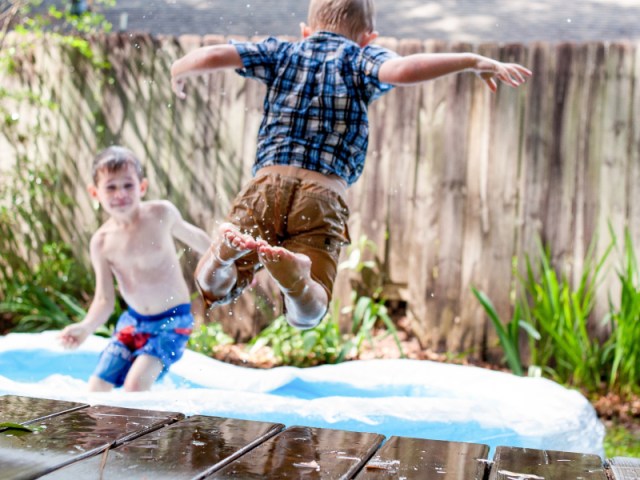It may be harder to see the changes in your child’s skill sets during the school-aged years than it is during the early years, but there is still a lot of development happening! Your child is getting stronger which leads to improvements in speed and strength during gross motor skills such as running and climbing. Your child’s advancement in fine motor skills allows her to participate in more complicated art activities that involve painting, cutting, and sculpting. Her cognitive skills provide more opportunities for activities with complicated rules, such as cooperative games and computer activities. And her social skills are becoming more and more important as her friends become a growing part of her life.
As your child has gotten older, she likely has more formed opinions on what types of classes and activities she wants to participate in. Following her interests is a great idea – you want her to enjoy her activities! However, there are other things to take into consideration when booking classes. Kids tend to enjoy doing things that they are good at, but it is also important to provide them with opportunities to practice the skills that they have difficulty with. Having a better understanding of your child’s development during this period, and which classes address those areas of development will help you make a more educated decision about which activities are best for your child.
Gross Motor Skills
Even though it may seem like your school-aged child’s gross motor skills are fully matured, they continue to develop during this age period. However, the most important part of gross motor development during this period is endurance. As your child spends most of the day in school, giving them the opportunity to move their body is very important. Any class that involves movement is a good choice for a child in this age group, such as martial arts, swimming, or dance.
Fine Motor Skills
Now that your child is in school her fine motor skills largely revolve around writing, typing, and art projects. Classes that involve higher level art, such as learning new drawing techniques or sculpting, will provide your child with enough of a challenge to build her fine motor skills.
Cognitive Skills
Your child’s academic advancements will likely be quite obvious during this time period, but there is also a lot of underlying cognitive development happening. Classes that involve hands-on experiments with trial and error, such as science or cooking, will allow them opportunities to improve their knowledge and understanding of how the world around them works, while also working on problem-solving, following a sequence, and mathematical understanding.
Social Skills
The best classes for social skills at this age group are ones that involve teamwork, such as team sports like lacrosse, soccer, basketball or competitions. This will allow your child the opportunity to learn to work together by each doing something different to reach a common goal. Your child will learn how to communicate effectively and work through conflicts.
Taking your school-aged child’s interests into consideration when picking a class is definitely a good idea, but you should also try to ensure that they are getting an opportunity to develop all of their skill sets!











